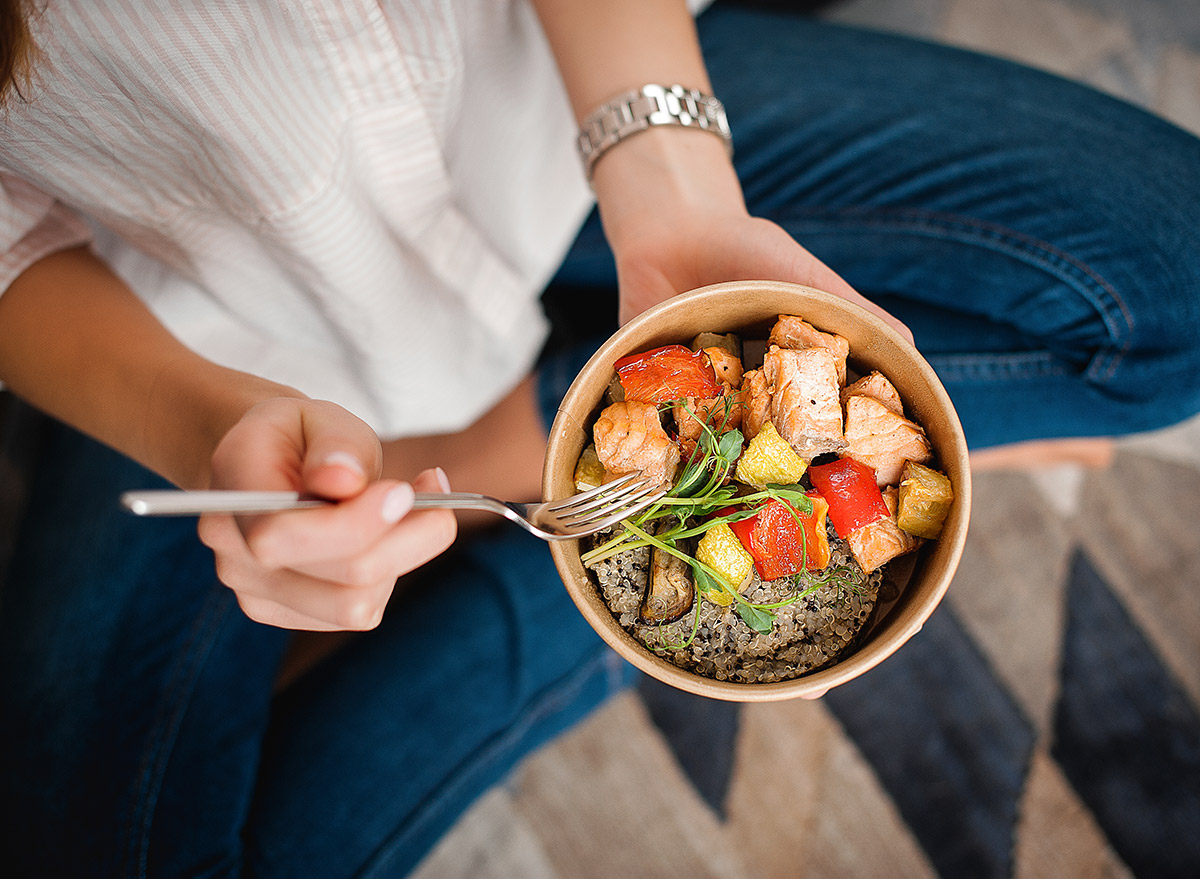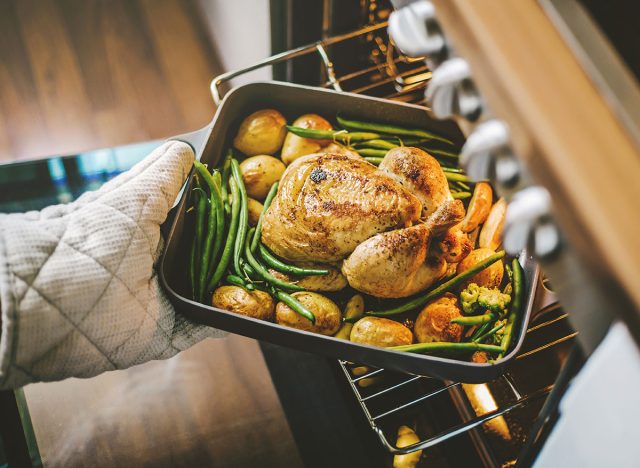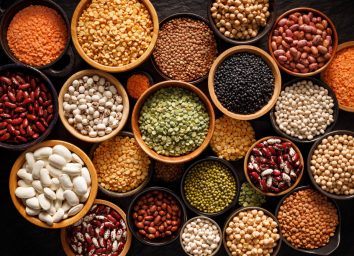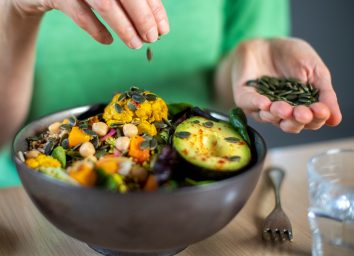I Ate Like The Longest Living People In The World—And I Feel Amazing

I've been fascinated by the diet and lifestyle habits of different countries for quite some time. This fascination first began when I moved to Ecuador for half a year. It was a huge adjustment in my daily routine, but in the best of ways.
Before long, I found myself walking everywhere, spending more time outside and with friends, and buying fresh food every day that was grown locally. When I returned home to the U.S. and fell back into my normal routine, I realized that I had felt so much healthier when I was overseas. I soon wondered if I'd ever be able to feel that healthy here at home.
That's when I first started reading about the Blue Zones. The Blue Zones are five regions around the world with the highest concentrations of centenarians (people who live to be 100). These regions include Nicoya, Costa Rica; Ikaria, Greece; Sardinia, Italy; Okinawa, Japan; and Loma Linda, California. Researchers have been studying these communities for years, and since then have found many commonalities among these places that make them some of the healthiest regions in the world.
Some of these commonalities include eating a mostly plant-based diet with meat on special occasions, consuming plenty of vegetables, beans, whole grains, and legumes, and limiting your consumption of saturated fats, added sugar, and processed foods. These regions also place a high value on finding community, spending time in nature and moving naturally, and lowering your stress levels.
While Ecuador isn't included as one of the five Blue Zones, I quickly realized that the daily habits I had adopted over there more closely resemble the Blue Zone regions than anything I had grown up doing back home.
Because of this, I felt inspired to see how I might be able to apply some of these commonalities to my daily life. Here's what happened when I ate like the longest living people in the world for three weeks.
I made some significant changes
To eat like some of the healthiest people in the world, I knew I'd have to make some fairly drastic changes to my diet. For example, I am someone who eats a decent amount of meat throughout the week, and I have a hard time saying no to ice cream after dinner.
For the three weeks, I decided to only eat chicken about once a week, and fish about twice per week. I incorporated more vegetables, fruit, whole grain bread, sourdough, oats, black beans, chickpeas, and olive oil into my daily diet. When I spent time with friends at dinner or at a bar, I ordered red wine instead of liquor or beer—or skipped the alcohol altogether. I also avoided fast food and cooked many of my meals at home.
For this experiment, I thought about giving up added sugar completely. However, I decided that since I haven't done well with super restrictive dieting in the past, I would just save sweets for a few different special occasions that were happening during the three weeks.
I had more energy-after I went through the sugar withdrawals
I will admit that the sugar withdrawals on the first couple of days were intense. I felt tired and groggy, and sometimes even irritable. This was eye-opening to me because even though I always knew that I loved post-dinner desserts, I wasn't aware of how much processed sugar I was eating throughout the day, too.
But after a few days, something amazing happened. I had a ton of energy. I was still drinking coffee in the morning, but I felt like I didn't need as much of it, and I wasn't experiencing as much of an afternoon slump.

I cooked at home and saved more money.
Because I wanted to lower my intake of processed foods, added sugar, and saturated fat, I found that it was just easier to cook most of my meals at home. I felt amazing doing this not only because I had more control over the ingredients I was using, but because I saved money in the process. I also learned that cooking is more fun than I ever thought it could be.
One thing I noticed during the second week was that I missed being able to order take-out on the busier days when I didn't feel like cooking. To find some compromise and stick to my plan, I picked up a couple of healthier frozen meals at Trader Joe's to have on hand.
My gut felt so much better.
Another shift that happened after I started including healthier foods and limiting the unhealthier ones was that I naturally consumed much more fiber than I had before. I was eating more fruit, vegetables, and beans, and was replacing refined carbs with more whole grains.
My gut started to feel better within a matter of days, and while I'll spare the details, I will say that my digestion and overall comfort levels improved greatly, which made me feel a lot better overall.
The one thing I should mention about this is that if you're not used to including very many beans or legumes in your diet on a regular basis, you may want to slowly integrate them into your meals instead of loading them up all at once. This was a mistake I made, and I was frustrated by how bloated I felt the first few days of eating this way, even though the bloating eventually went away. For this reason, researchers of the Blue Zones recommend giving your gut some time to get used to eating beans.
Overall, I would absolutely continue incorporating these eating habits into my daily routine. Limiting my consumption of processed foods and added sugar, while focusing more on vegetables and whole grains really did make me feel a lot better throughout the day. I think one the most amazing things about eating this way is that I didn't feel like I was following a strict diet, so I was able to be more flexible than I have been with past eating plans.
I will continue to incorporate some of these habits where I can, but food is just one piece of the puzzle when it comes to the world's longest-living people. Hopefully, I can continue learning more from them about healthy living in all areas of life as well.
Here are 9 Healthy Eating Habits to Live Over A Century, Say Dietitians.








